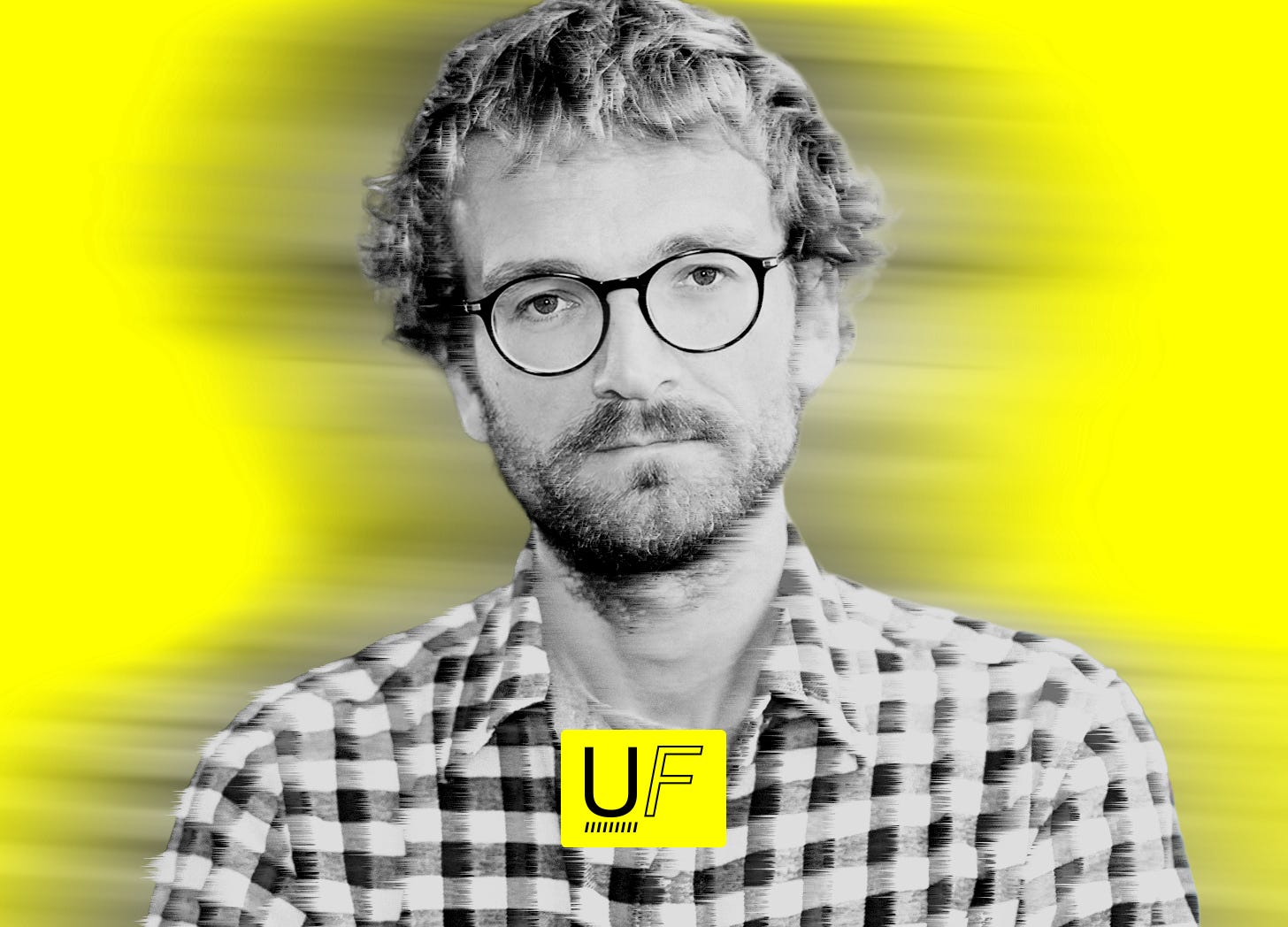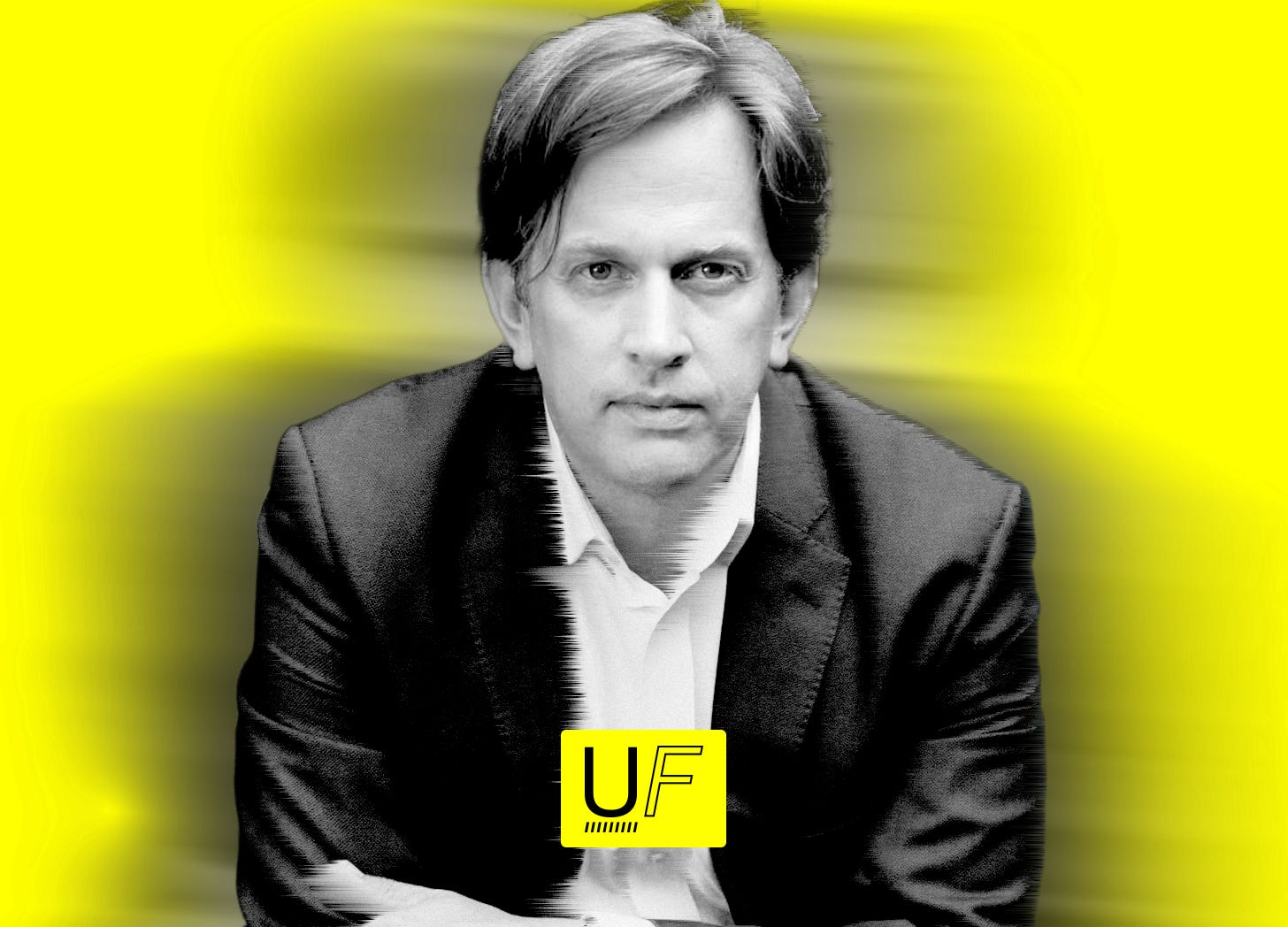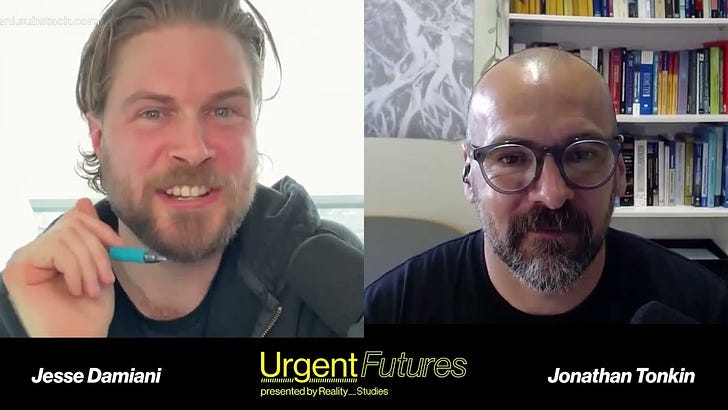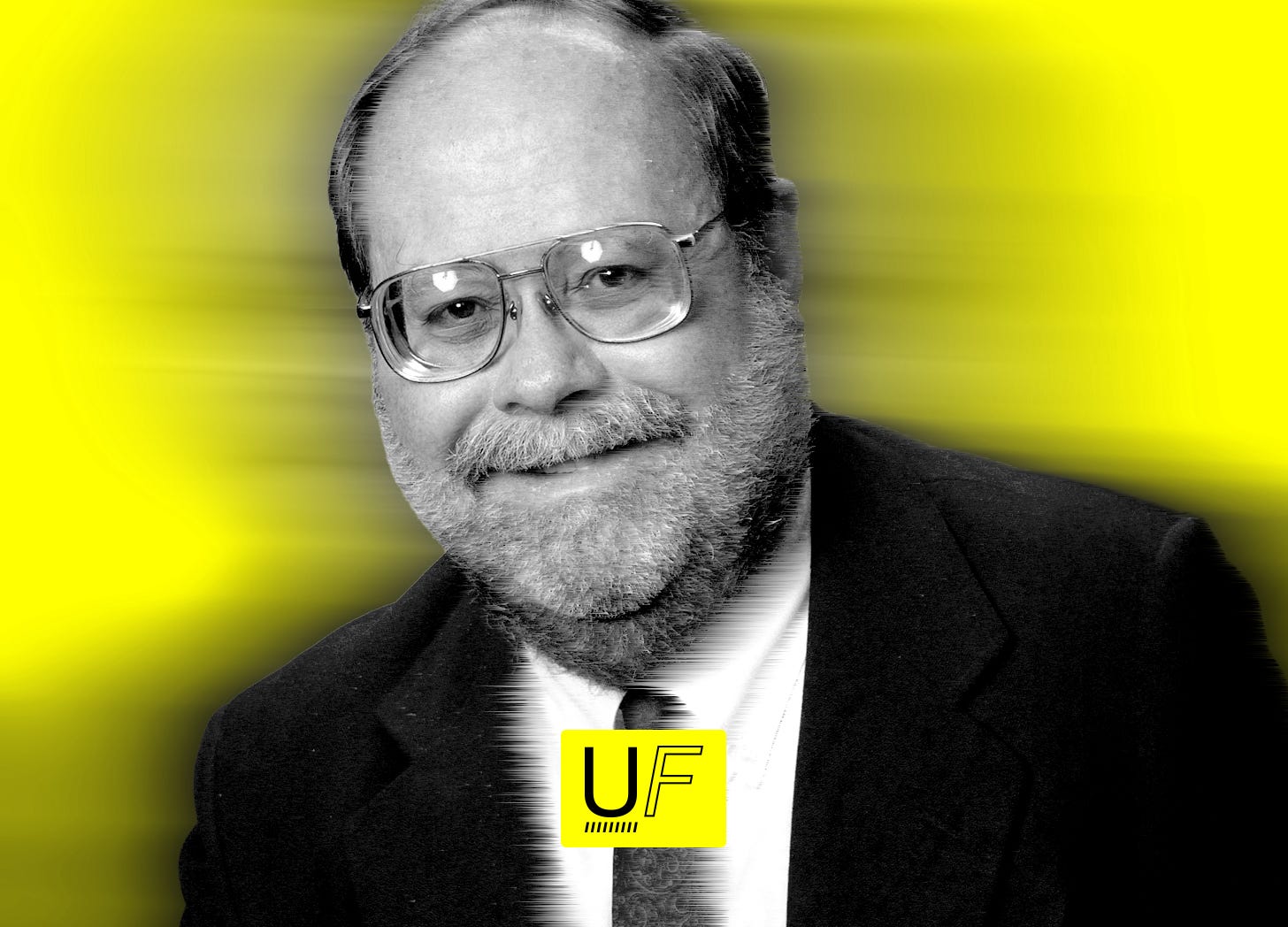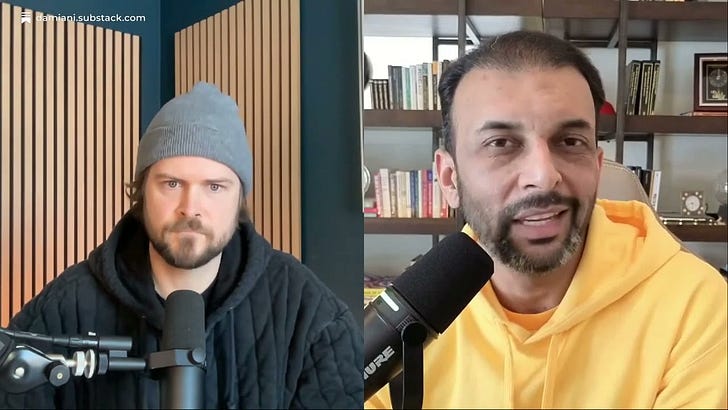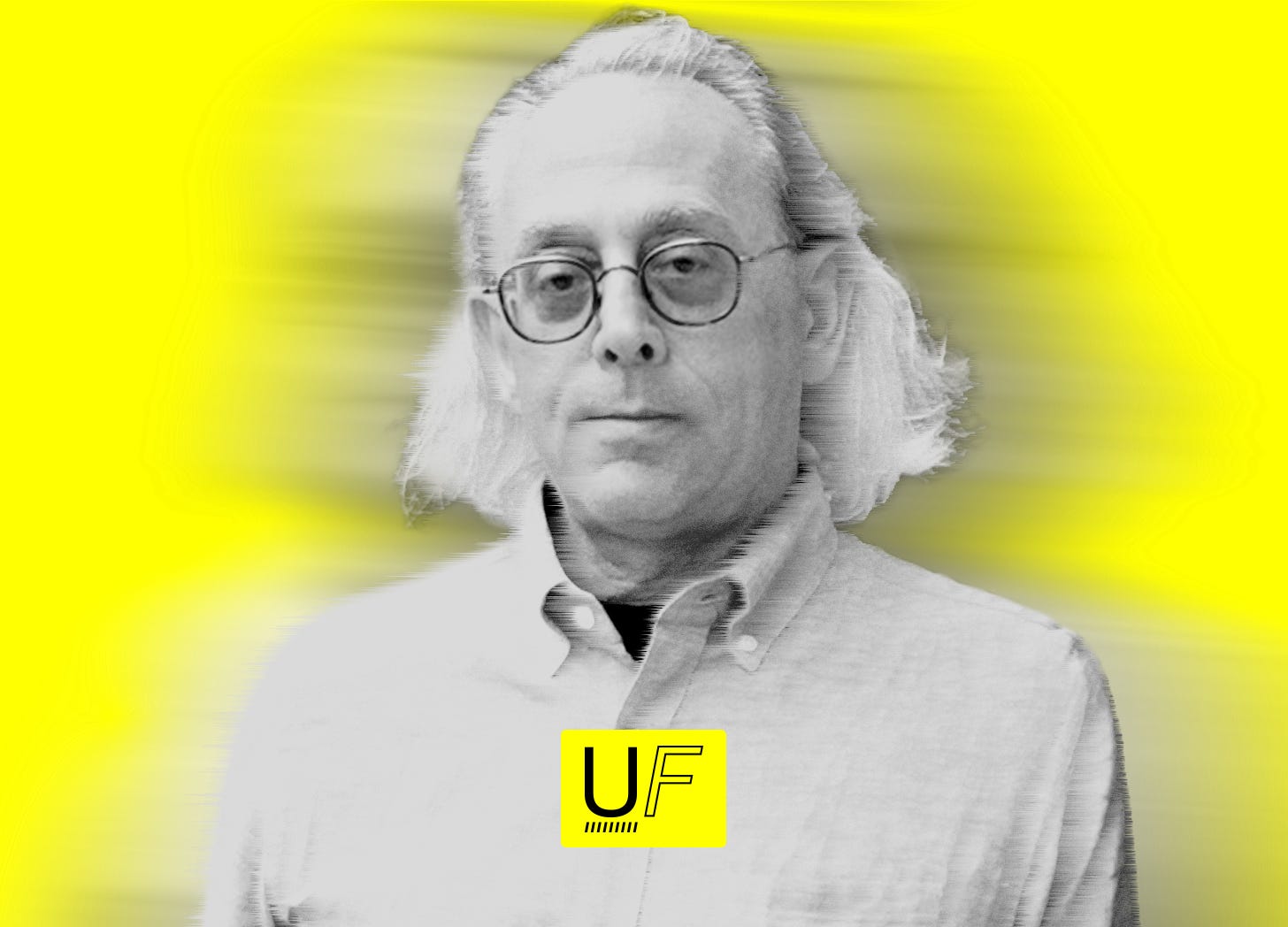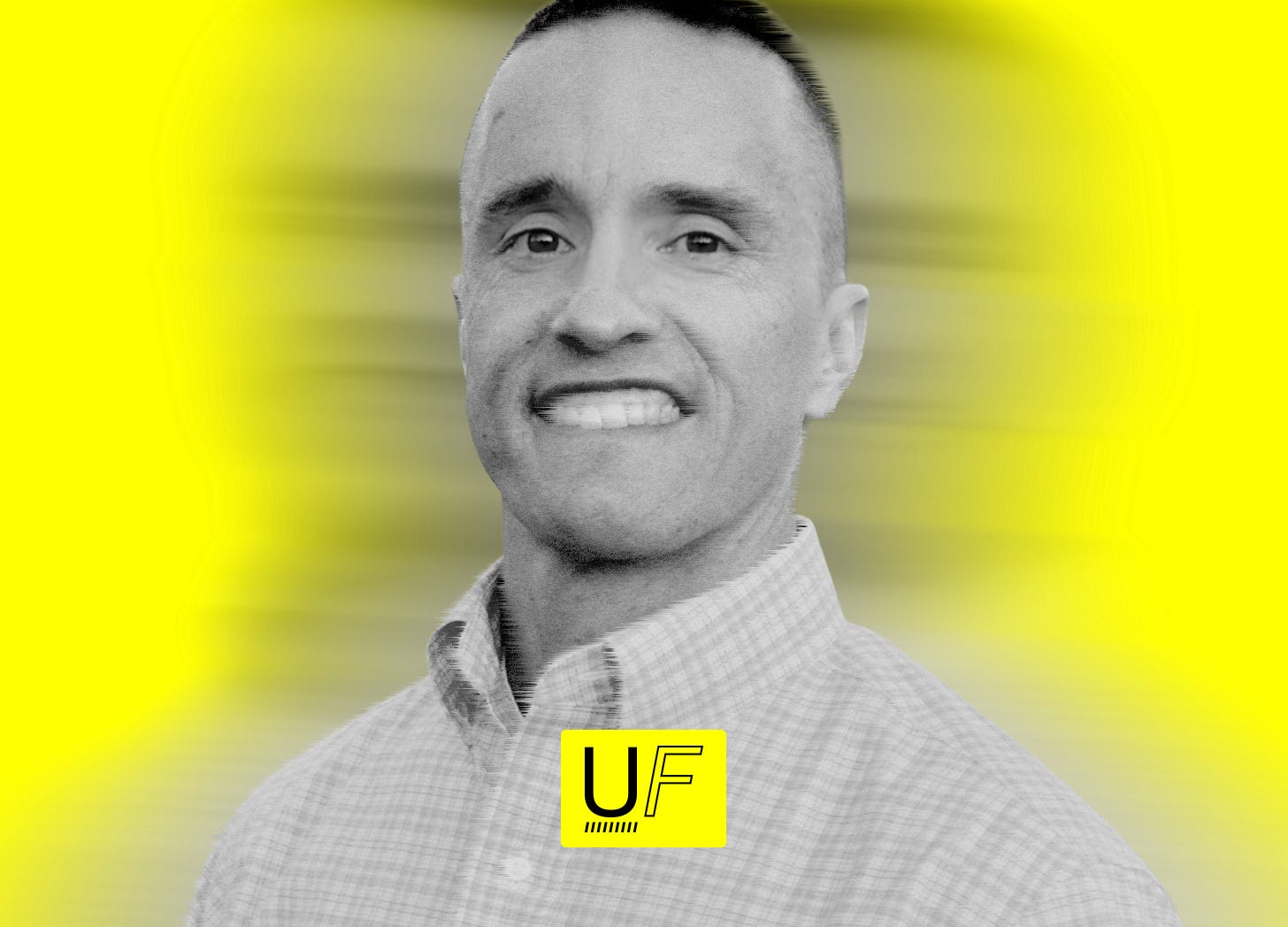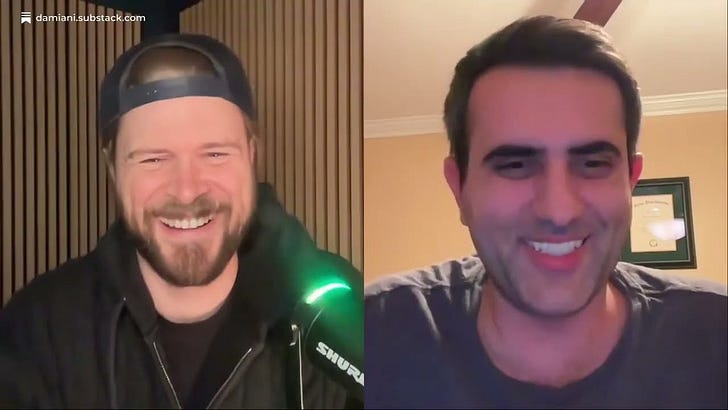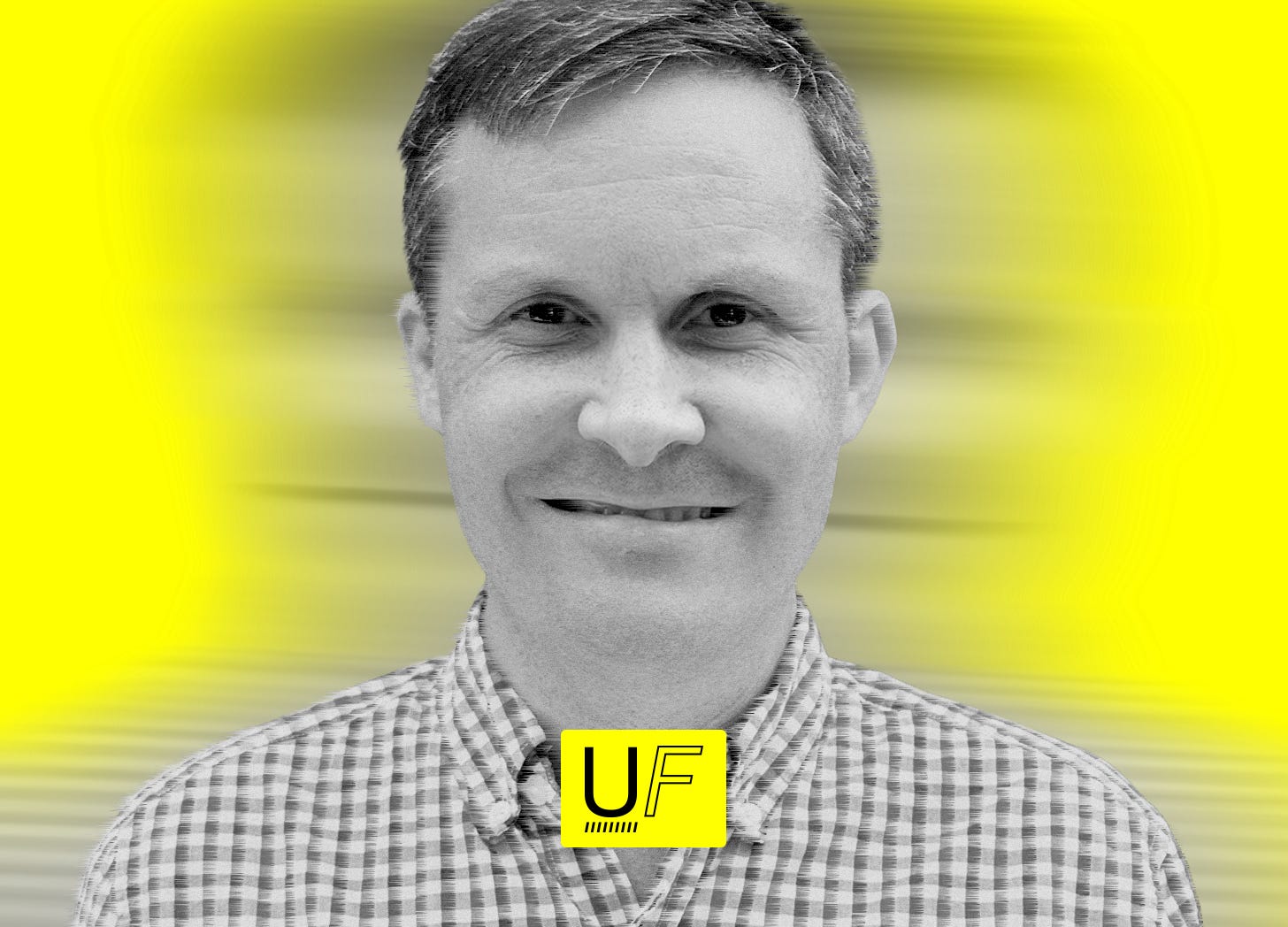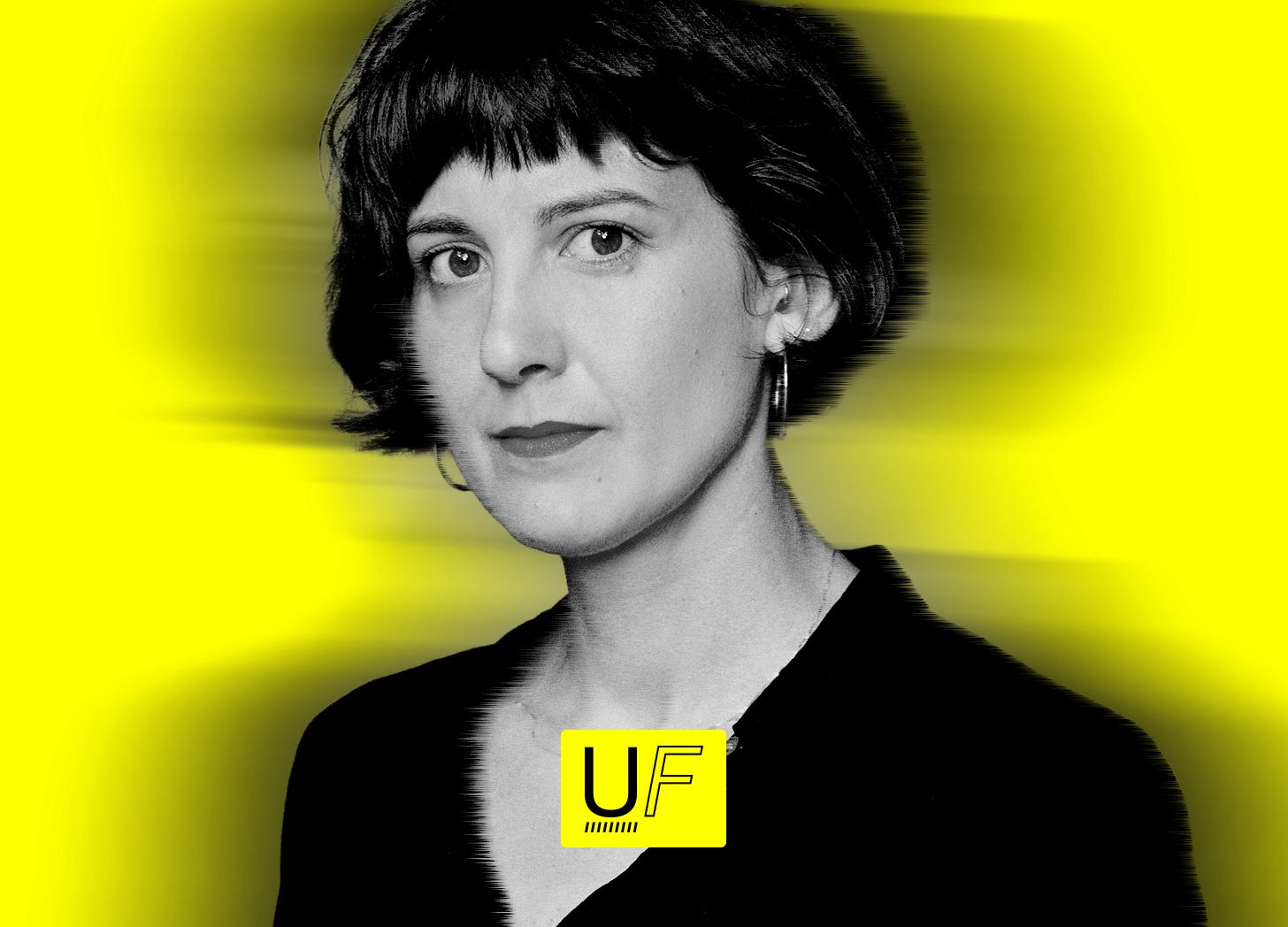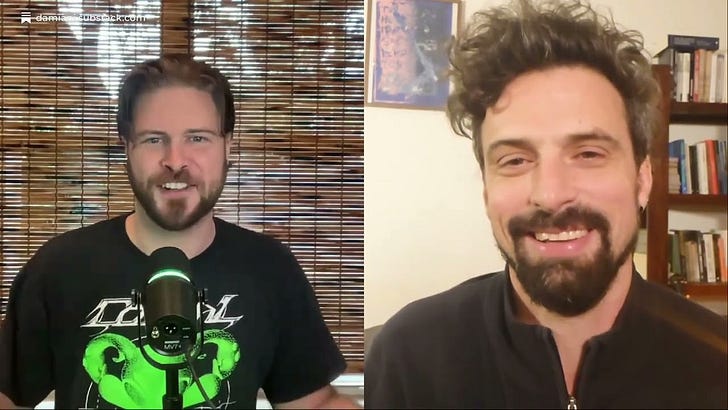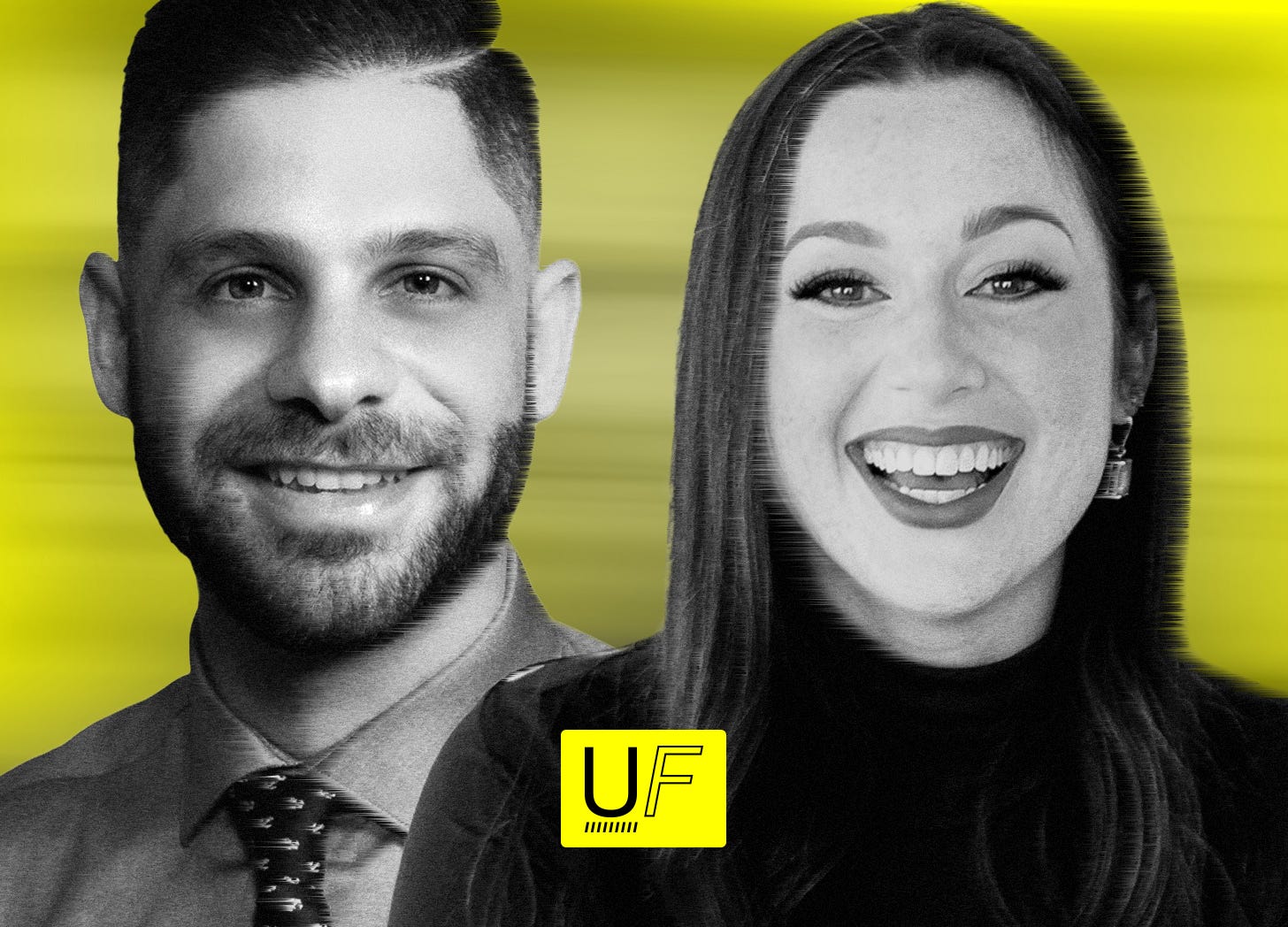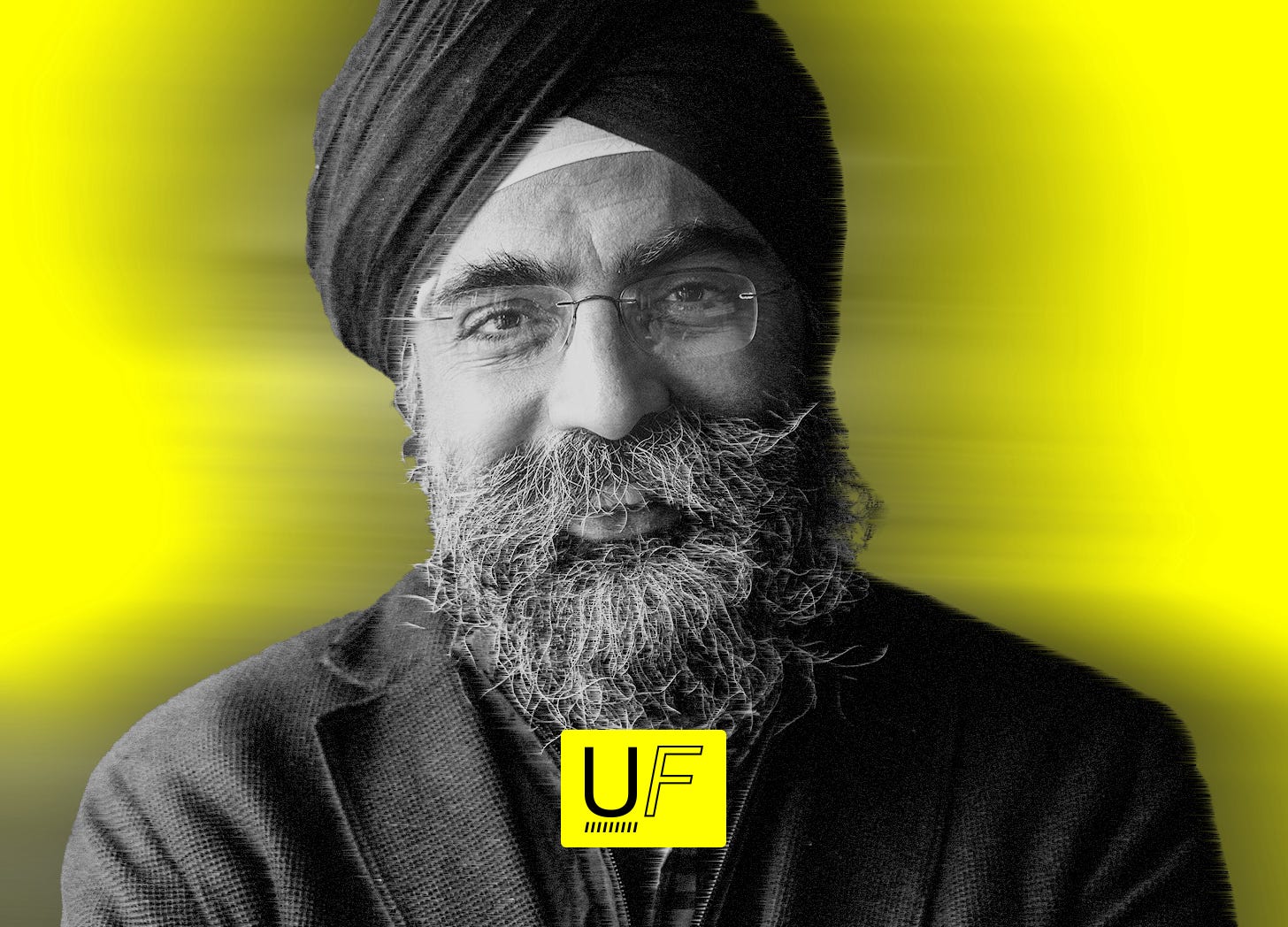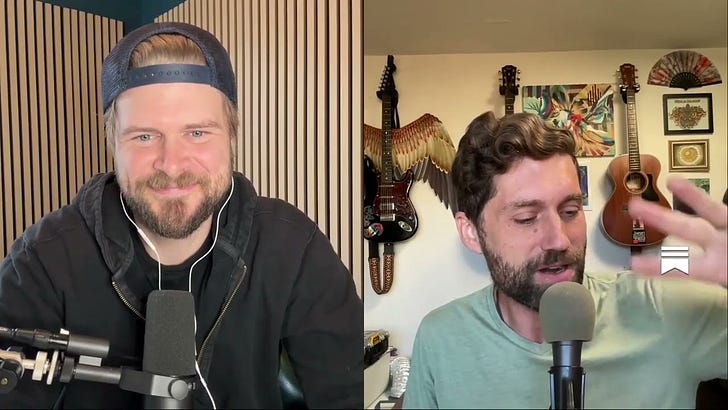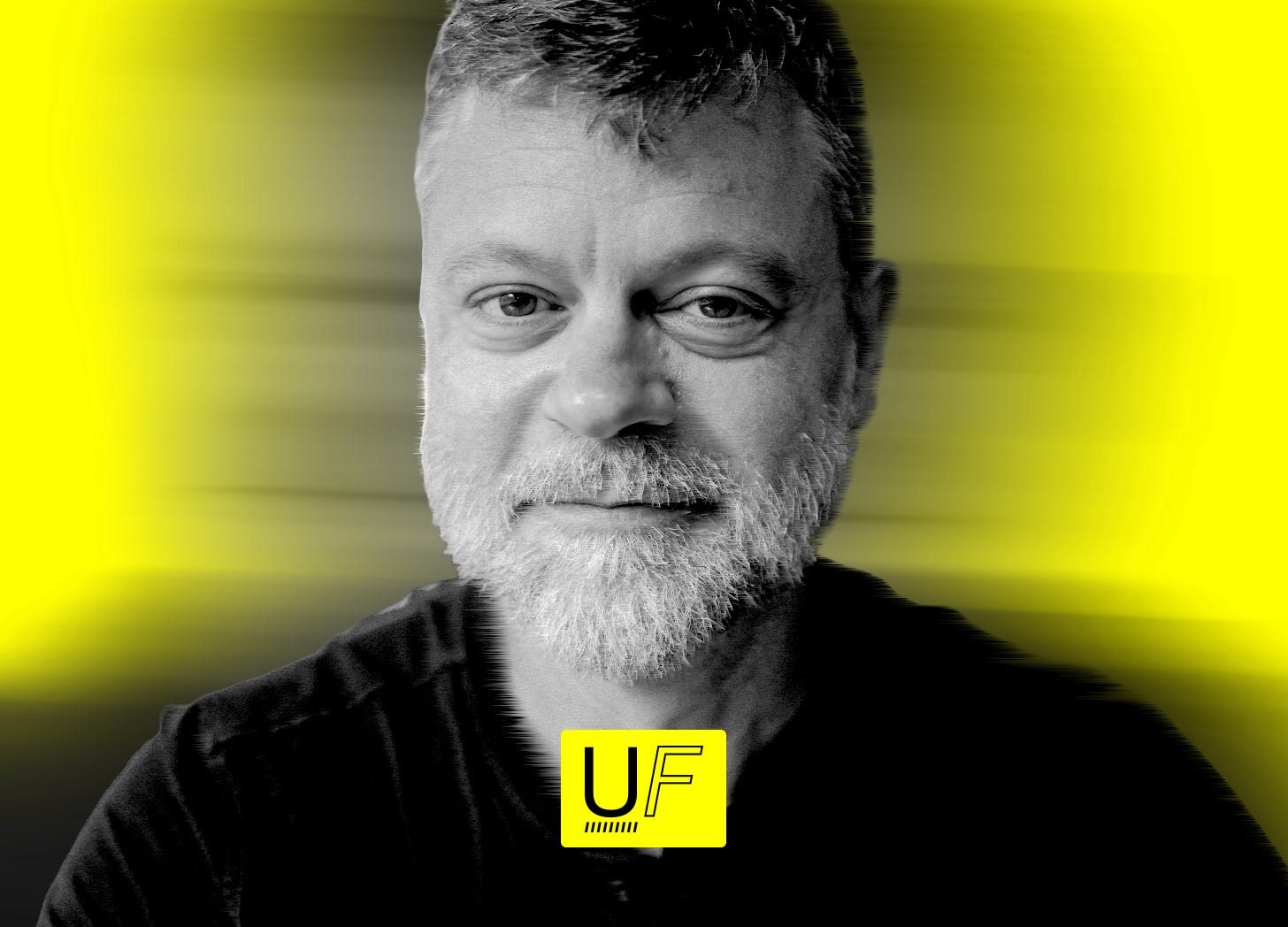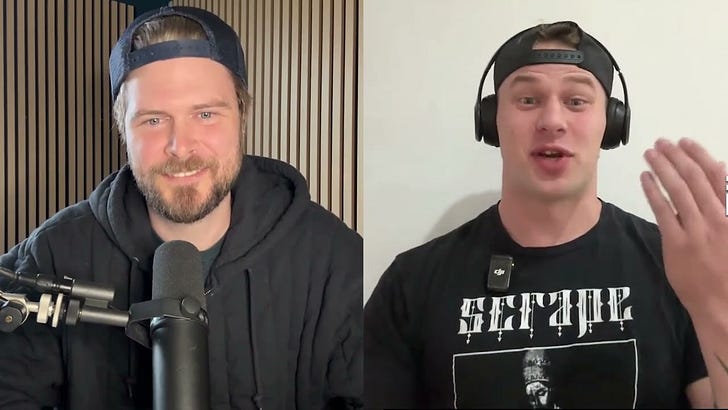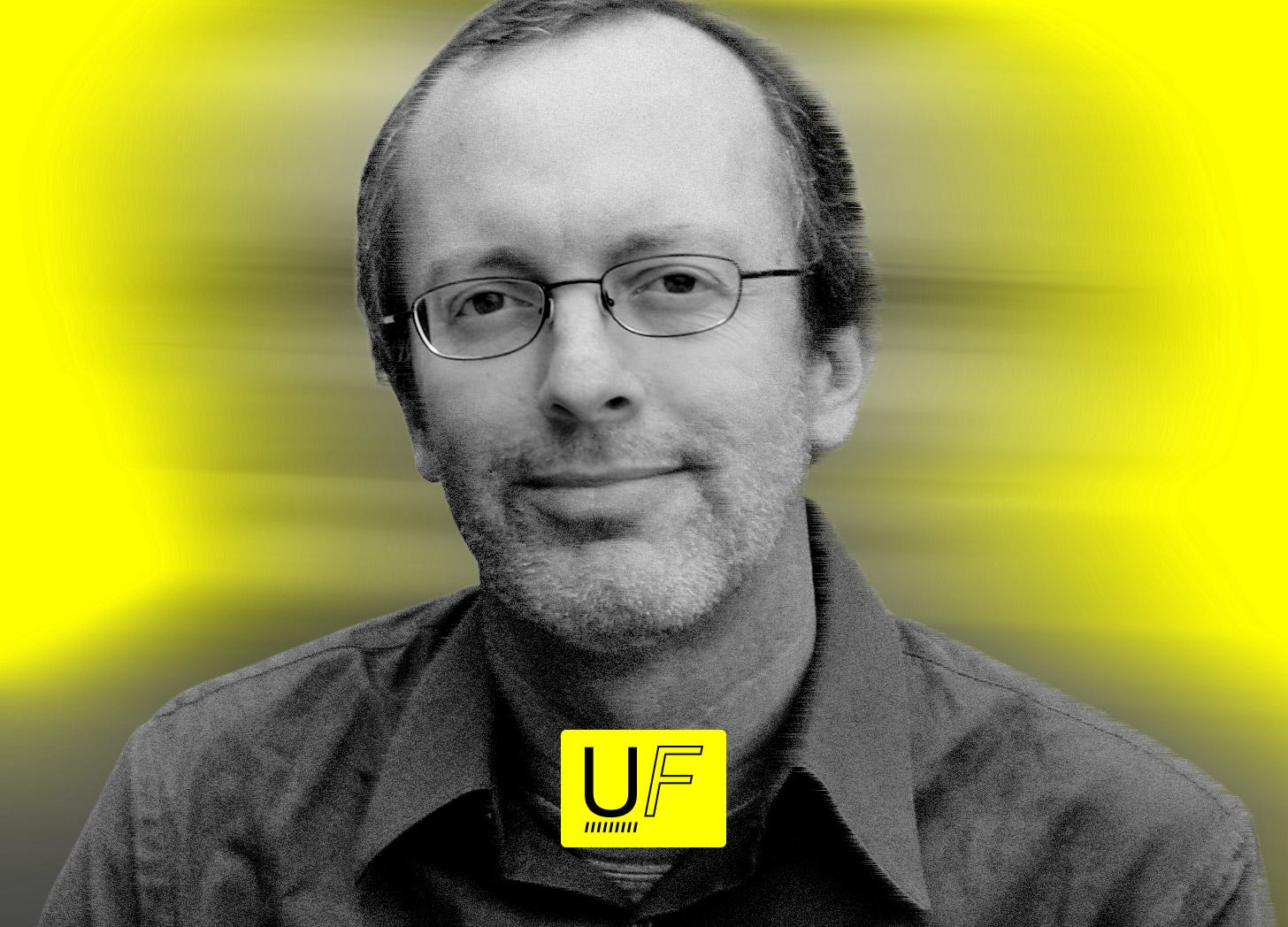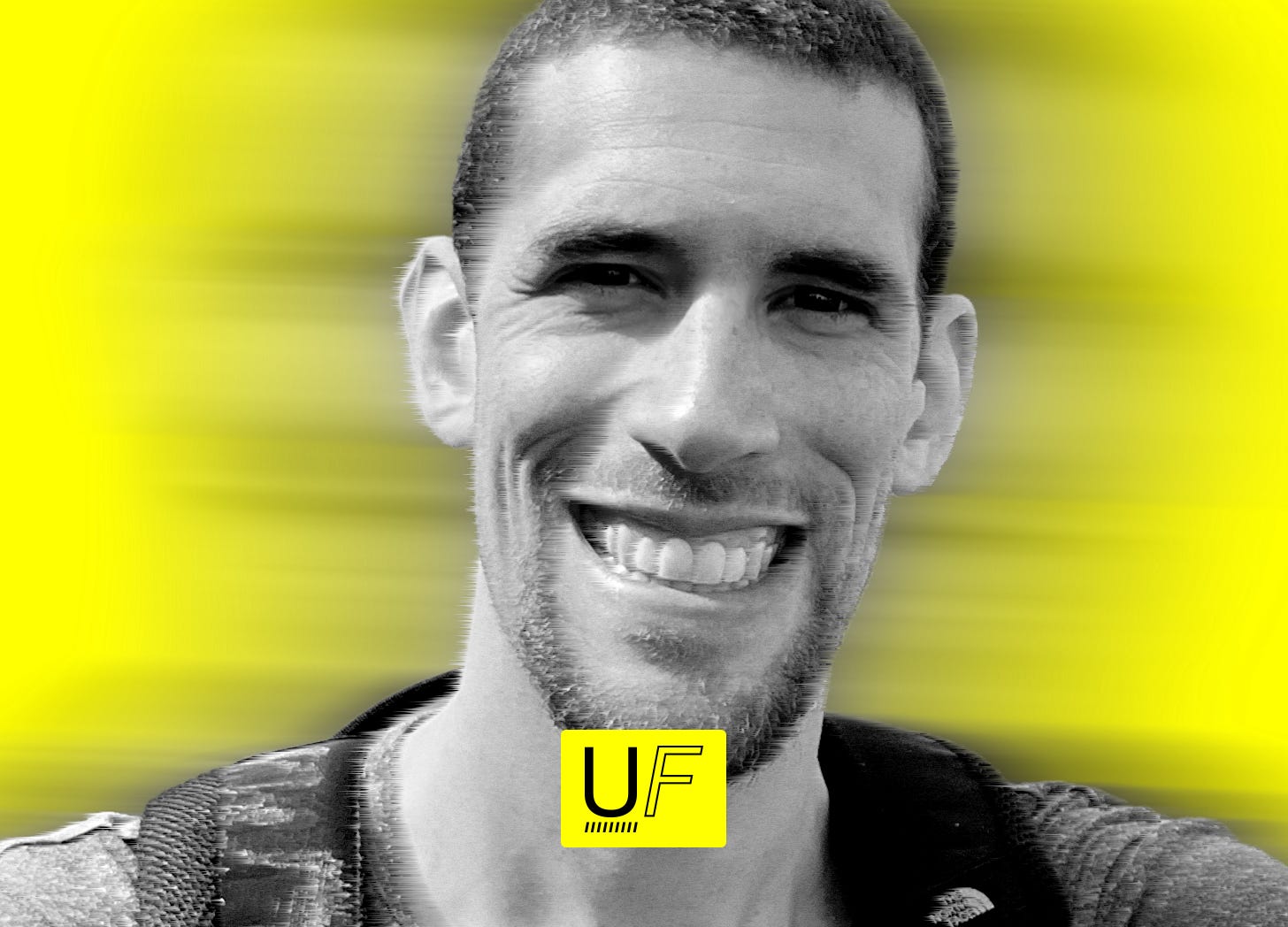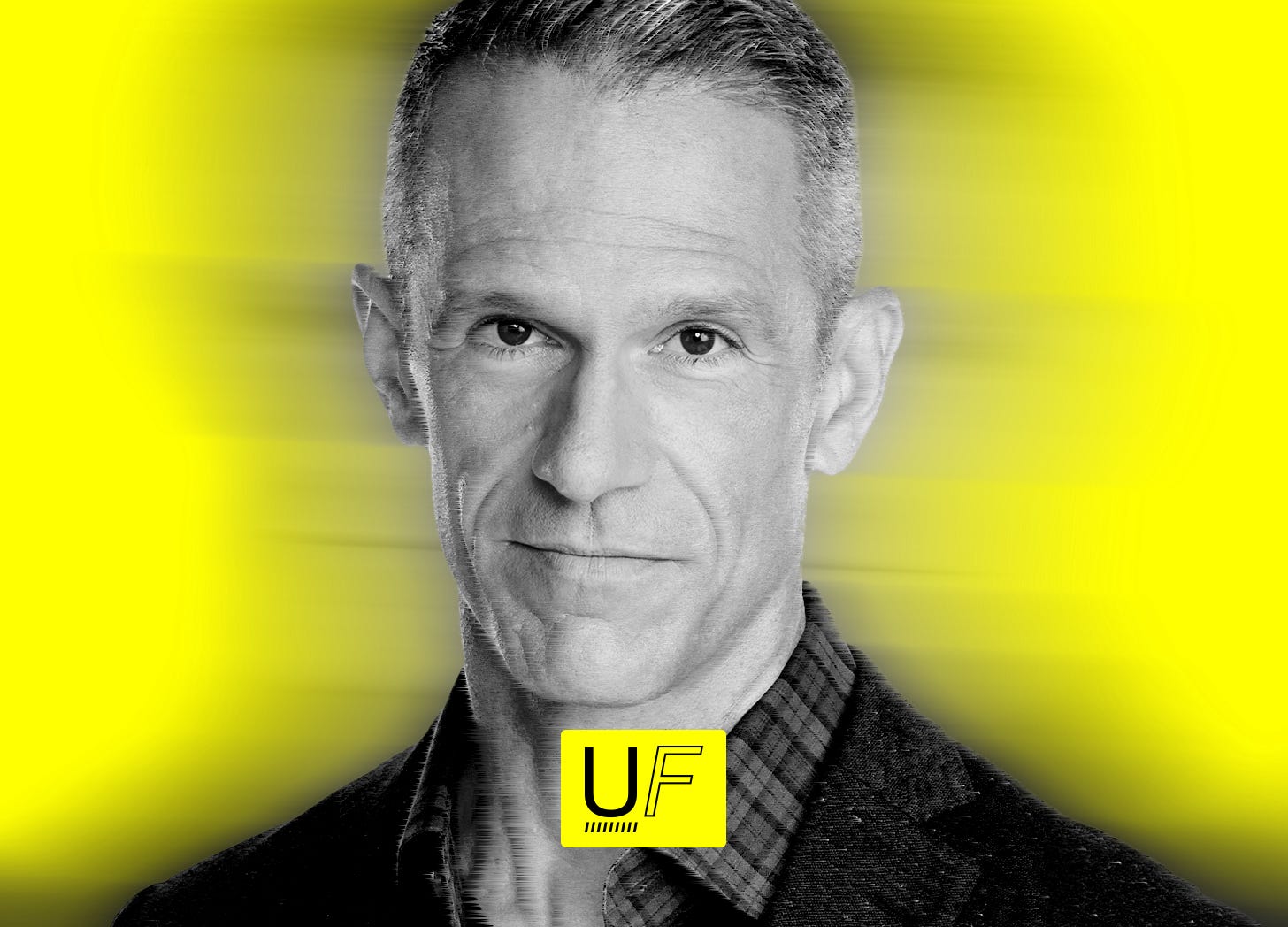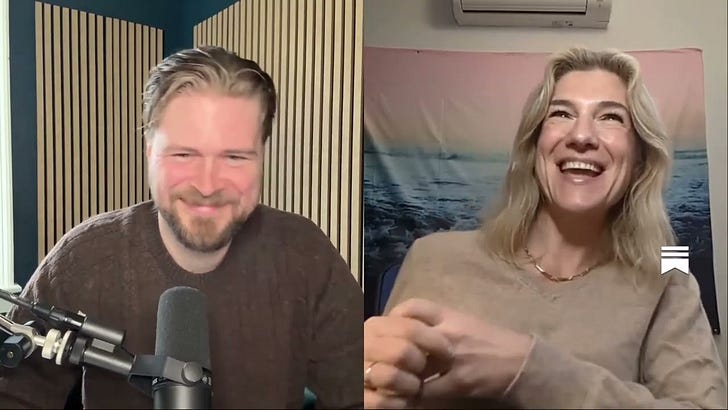Discover Urgent Futures with Jesse Damiani
Urgent Futures with Jesse Damiani

Urgent Futures with Jesse Damiani
Author: Jesse Damiani
Subscribed: 21Played: 512Subscribe
Share
© Jesse Damiani
Description
Welcome to the Urgent Futures Podcast, the show that finds signal in the noise. Each episode, I sit down with leading thinkers for dialogues that clarify the chaos, from culture to the cosmos.
www.realitystudies.co
www.realitystudies.co
89 Episodes
Reverse
Geoengineering might sound nice in theory, but the consequences could be disastrous. Today's guest, Wim Carton, co-wrote The Long Heat with Andreas Malm, which helps paint the full picture.Grab your copy of The Long Heat here!Support the show by checking out: ProtonVPN (gold-standard VPN—fast and safe. Click the link to get 55% off VPN Plus: $4.49/mo). ZBiotics (Decrease impact of hangovers. Code: JESSEDAMIANI for 10% off), MUD\WTR (43% off starter kits), 1Password (simplify your life and increase digital safety), Mission Farms CBD (healthy, effective CBD for relief, sleep, and wellbeing—25% off with email).BIO: Wim Carton is Associate Professor of Sustainability Science at Lund University, Sweden. He’s the author of over 20 academic articles and book chapters on climate politics. His work has appeared in top journals such as Nature Climate Change, WIRES Climate Change and Antipode. He co-wrote both Overshoot: How the World Surrendered to Climate Breakdown and The Long Heat: Climate Politics When It’s Too Late with Andreas Malm.It is a loud, chaotic time. There are so many worrying developments that demand our immediate attention, action, and solidarity. I know that we all have limits to how much depressing information we can withstand. The not-so-awesome followup here is that there are things unfolding in the background that are also worthy of your attention, but they get virtually zero airplay because they’re not immediate disasters. If you’ve followed my channel for a while, you’re already familiar with a bunch of these, so I won’t belabor this point.One of the most critical ones you need to be aware of is solar geoengineering, an umbrella term for speculative technologies designed to temporarily cool the Earth by reflecting sunlight back into space, typically through dispersing large quantities of sulfates in the atmosphere. At first blush, this may not sound like the worst idea. We know from researching the aftermath of volcanic eruptions that the cooling effect is real, not hypothetical, and especially given the unprecedented heat of the past three years, finding a seemingly straightforward way to cool the planet down might seem like a no-brainer. Unfortunately, it’s too good to be true, which is what today’s guest Wim Carton—along with his co-author Andreas Malm—go to great lengths to demonstrate in their absolute must-read book, The Long Heat. This book is something of a sequel to their likewise superb Overshoot (and for an invitation into that book, be sure to check out my earlier episode with the two of them).Grab your copy of Overshoot here!Having learned from folks like Wim, I think this issue is one of the single most important topics we need to be discussing right now, before it spirals out of control. Because make no mistake: even though we aren’t yet witnessing much geoengineering—and therefore not seeing its knock-on effects—interest is increasing. Israeli-US startup Stardust Solutions announced it had raised $60 million last year, claiming they would begin with experiments in April 2026. And of course, as the impacts of climate change and extreme weather become more pronounced—and we emit ever more greenhouse gases into the atmosphere—desperate times might cause many to turn to desperate measures.After reading The Long Heat, I could spend all day explaining all the ways this go wrong, but instead, I’m going to let you hear it from the author himself. Please enjoy this vital conversation with Wim Carton.CREDITS: This podcast is produced & edited by Adam Labrie & me, Jesse Damiani. Adam Labrie also edited the video version, which is available on YouTube.Find more episodes of Urgent Futures at: youtube.com/@UrgentFutures. Get full access to Reality Studies at www.realitystudies.co/subscribe
My guest this week is Stephen Marche. Stephen is the author of The Next Civil War and On Writing and Failure. He frequently experiments with literary AI.Support the show by checking out: ProtonVPN (gold-standard VPN—fast and safe. Click the link to get 55% off VPN Plus: $4.49/mo). ZBiotics (Decrease impact of hangovers. Code: JESSEDAMIANI for 10% off), MUD\WTR (43% off starter kits), 1Password (simplify your life and increase digital safety), Mission Farms CBD (healthy, effective CBD for relief, sleep, and wellbeing—25% off with email).That modest bio doesn’t do justice to Stephen’s extensive writing and public intellectualism across culture, politics, and technology. We’ve been connected for a few years because of his early experiments with AI in writing—and as you’ll hear in the episode, he actually holds a number of historical firsts in this regard. In 2022, he published The Next Civil War, a book that is exactly what it sounds like: speculative scenarios rooted in rigorous research—including roughly 200 interviews with subject matter experts—about how the next American Civil War might transpire. It’s a bracing read, and unfortunately, much of what he put in that book is coming true.Grab your copy of The Next Civil War here!So it might also come as a surprise to discover that Stephen is Canadian, though he lived in the US for many years. This insider-outsider perspective is critical for discussing such a fraught topic. And his Canadian-ness is also what led me to host this rapid response episode—I’d been meaning to invite him on the show for a while to discuss the aforementioned, but then Canadian Prime Minister Mark Carney gave his address at the World Economic Forum. Fans of the channel will know that I have closely tracked the prospect of the “rules based” international order’s collapse, and Carney pretty baldly named this.If you haven’t watched the address or read about it, I encourage you to do so now. Suffice to say, it felt critical to foreground Stephen’s analysis. And then, toward the end of the episode, we also discuss his literary AI experiments, his take on the current state of affairs, and much more.CREDITS: This podcast is produced & edited by Adam Labrie & me, Jesse Damiani. Adam Labrie also edited the video version, which is available on YouTube.Find more episodes of Urgent Futures at: youtube.com/@UrgentFutures. Get full access to Reality Studies at www.realitystudies.co/subscribe
For as much as I bemoan the attention fracture that occurs on social media, there are times I’m so grateful for it; I discovered the work of Jonathan Tonkin through a Substack Note about ecosystem services—the financial value that the natural world provides, which is vast and yet is barely ever accounted for under capitalist economics (on that note: please be sure to bookmark my conversation with Alyssa Battistoni on the ‘free gifts’ of nature).While we’re at it, please subscribe to his incredible newsletter, Predirections, right now: https://predirections.substack.com/Fast forward and I was lucky that he agreed to join me for a discussion on biodiversity, and in particular his research on freshwater biodiversity. This is one of those subjects that is massively important (to put it mildly!), yet doesn’t get quite as much airtime as more “charismatic” crises like climate change. As Jono explains: it's the "foundation for our very existence."Support the show by checking out: ProtonVPN (gold-standard VPN—fast and safe. Click the link to get 55% off VPN Plus: $4.49/mo). ZBiotics (Decrease impact of hangovers. Code: JESSEDAMIANI for 10% off), MUD\WTR (43% off starter kits), 1Password (simplify your life and increase digital safety), Mission Farms CBD (healthy, effective CBD for relief, sleep, and wellbeing—25% off with email).There’s a lot here, including a discussion about the wonder of braided rivers and broader questions around how we balance “human urgency” and “ecological rhythms,” advocating for what he calls “patient urgency.” We also get into his journey on Substack, and how he balances the differing demands of being an academic and a public communicator. Also he just got a new dog! All to say: if you’re like me, you’ll leave this conversation feeling both inspired and ready to take action in your own life to protect what is precious on this planet.BIO: I love that Professor Tonkin shares his bio in the first person, so I’m copying that here for you:I’m Jonathan Tonkin (Jono for short) — an ecologist and biodiversity scientist at the University of Canterbury in New Zealand, where I’m a Professor and Rutherford Discovery Fellow.My research has spanned continents and ecosystems, but I’ve always returned to one core question: How do we predict and adapt to environmental change in a way that supports life — all life?I’ve spent much of my career documenting biodiversity loss, especially in freshwater ecosystems. Now, I’m pivoting toward solutions: redirecting effort, exploring policy levers, and amplifying the science that can help us adapt. After publishing 100 peer-reviewed papers — including in Nature and Science — I want to share what I’ve learned beyond academia: translating the latest science into plain language, before it even reaches the headlines, to inform, inspire, and equip a wider community.I’m also a parent of two young kids. That perspective shapes everything I write.You can learn more about my research and lab at tonkinlab.org — we focus on biodiversity science for a changing world.🏆 Recently, I was honoured with the New Zealand Prime Minister’s MacDiarmid Emerging Scientist Prize.Find more episodes of Urgent Futures at: youtube.com/@UrgentFutures. Get full access to Reality Studies at www.realitystudies.co/subscribe
Having researched the topic of collapse for more than half a decade, I can say with some confidence that interest in it has increased over the past few years. And it makes sense—wherever you look, be it politics, climate change, the economy, tech accelerationism, or otherwise, we’re getting a lot of scary signals. But collapse is a slippery word—what exactly does it mean? And what exactly qualifies a particular breakdown as collapse?Support the show by checking out: ProtonVPN (gold-standard VPN—fast and safe. Click the link to get 55% off VPN Plus: $4.49/mo). ZBiotics (Decrease impact of hangovers. Code: JESSEDAMIANI for 10% off), MUD\WTR (43% off starter kits), 1Password (simplify your life and increase digital safety), Mission Farms CBD (healthy, effective CBD for relief, sleep, and wellbeing—25% off with email).To get granular, I’m happy to share this conversation with collapsology legend, Joseph Tainter, who was researching collapse long before it was en vogue, notably authoring The Collapse of Complex Societies nearly forty years ago. Perhaps his most notable argument from this work is that collapse occurs when a civilization reaches a point of diminishing returns on complexity—that is, when increasing amounts of capital, energy, and resources are required just to sustain the system, until the cost of maintaining it outweighs the benefits.It’s a provocative argument, and folks like existential risk researcher Luke Kemp, who I had on the show late last year, have proposed alternative viewpoints—but which nevertheless build on Professor Tainter’s remarkable scholarly legacy. This argument is especially worth considering when we look at the current strain on the “rules-based” international order that the United States has (otherwise) maintained since the end of WWII.There’s so much in this conversation, drawing together his collapsology research with his contributions to energy and sustainability research—and much more, examining how it all fits together in today’s global context.BIO: Joseph Tainter is an anthropologist and retired professor, formerly at Utah State University. He is the author of The Collapse of Complex Societies, and co-author with Timothy F. H. Allen and Thomas W. Hoekstra of Supply-Side Sustainability. With Roderick and Susan McIntosh he edited The Way the Wind Blows: Climate, History, and Human Action. With Tadeusz Patzek he wrote Drilling Down: The Gulf Oil Debacle and Our Energy Dilemma. Dr. Tainter’s research has been used in over 50 countries and his books have been issued in 10 languages. His work has been consulted in the United Nations Environment Programme, UNESCO, the World Bank, the Rand Corporation, the International Institute for Applied Systems Analysis, the Beijer Institute of Ecological Economics, the Earth Policy Institute, Technology Transfer Institute/Vanguard, and the Highlands Forum. His research has been applied in economic development and energy.CREDITS: This podcast is produced & edited by Adam Labrie & me, Jesse Damiani. Adam Labrie also edited the video version, which is available on YouTube.Find more episodes of Urgent Futures at: youtube.com/@UrgentFutures. Get full access to Reality Studies at www.realitystudies.co/subscribe
Is it okay for folks on the left to criticize the Democratic Party? Qasim Rashid lost thousands of followers because he did. What are our responsibilities as Americans who believe in democracy and resisting fascism? What strategies can we use? Support the show by checking out: ProtonVPN (gold-standard VPN—fast and safe. Click the link to get 55% off VPN Plus: $4.49/mo). ZBiotics (Decrease impact of hangovers. Code: JESSEDAMIANI for 10% off), MUD\WTR (43% off starter kits), 1Password (simplify your life and increase digital safety), Mission Farms CBD (healthy, effective CBD for relief, sleep, and wellbeing—25% off with email).In this conversation, we discuss what informed, ethical resistance looks like as authoritarianism continues its march into American politics—and why it's okay to demand better of "your side" if they're not advancing justice. We also get into Minneapolis, corporate media's complicity in authoritarianism, Qasim's reading club around his book The Wrong Kind of Muslim, including a touching moment where Qasim shares more about his relationship with his father and faith journey.BIO: Qasim Rashid, Esq. is a human rights lawyer, author, and former nominee for U.S. Congress. He received his BSc from the University of Illinois at Chicago, his JD from Richmond Law, and served as a visiting fellow at Harvard University.Qasim’s human rights work includes supporting survivors of domestic and sexual violence, representing asylum seekers, and serving as a first responder to global disasters. He has published numerous books, academic law reviews, and articles across the media spectrum in TIME, New York Times, Washington Post, NPR, and USA Today.Qasim is the Founder and President of Just Win, a creator representation firm focused on social justice and human rights. He runs a popular human rights Substack with more than 165,000 subscribers titled “Let’s Address This with Qasim Rashid,” and has more than 2.25 million social media followers. You can find him across platforms @QasimRashid.Find more episodes of Urgent Futures at: youtube.com/@UrgentFutures. Get full access to Reality Studies at www.realitystudies.co/subscribe
If you’re looking for historical thinkers who can help you navigate authoritarianism, fascism, totalitarianism, and questions of human rights, you’d do worse than to start with Hannah Arendt, one of the most influential political theorists of the 20th century. I’ve found myself returning to her words repeatedly over the past few years for exactly this reason. You’re perhaps already familiar with the phrase “the banality of evil.” This is one of her most famous contributions to thought, and emerged from her analysis of the trial of Adolf Eichmann, one of the key Nazi figures in organizing the Holocaust in the book Eichmann in Jerusalem.Support the show by checking out: ProtonVPN (gold-standard VPN—fast and safe. Click the link to get 55% off VPN Plus: $4.49/mo). ZBiotics (Decrease impact of hangovers. Code: JESSEDAMIANI for 10% off), MUD\WTR (43% off starter kits), 1Password (simplify your life and increase digital safety), Mission Farms CBD (healthy, effective CBD for relief, sleep, and wellbeing—25% off with email).Bard College is home to the Hannah Arendt Center for Politics and Humanities, whose mission is to “create and nurture an institutional space for bold, risky and provocative thinking about our political world in the spirit of Hannah Arendt,” and to “to empower a plural people to at once (re)discover their unique opinions and political agency and also find common ground to build together a shared world through thinking, listening, and talking with one another.”Today’s guest is the founder and academic director of the Center, and as you’d guess, we have a wide-ranging conversation linking the aforementioned topics to today’s political environment, with a special eye on the US. We also discuss the 2025 edition of the Center’s annual conference, themed “Joy: Loving the World in Dark Times,” which feels especially pertinent as America continues to tilt toward authoritarianism—an evolution I’ve called quantum fascism. Notably, Roger disagrees that we Americans are currently living under a fascist regime, though understands why people are inclined to think we are. Whether or not you agree, his argument is compelling and based in close analysis.What I so appreciate about this conversation is that Roger is committed to his political and personal ethics, and in some cases this means he gets a little controversial relative to more mainstream liberal or leftist positions. The result is a bracing, edifying conversation. We get into so much, in fact, that we held off on diving deep on his forthcoming book, A World We Share: Hannah Arendt and the Power of Friendship in a Broken World. The good news is Roger has agreed to come back on the show in the fall to go deep on it with me. Until then, please enjoy this powerful conversation with Roger Berkowitz.BIO: Roger Berkowitz is Founder and Academic Director of the Hannah Arendt Center for Politics and Humanities and Professor of Politics, Philosophy, and Human Rights at Bard College.He is author of The Gift of Science: Leibniz and the Modern Legal Tradition (Harvard, 2005, Fordham, 2010; Chinese Law Press 2011) and his new book A World We Share: Hannah Arendt and the Power of Friendship in a Broken World will appear in 2026 from Yale University Press.Berkowitz is the host of the podcast, Reading Hannah Arendt with Roger Berkowitz. He is also a regular panelist on The Roundtable, a daily news show for WAMC, the NPR affiliate in Albany, NY, and hosts For the Love of the World on Radio Kingston. Berkowitz wrote the Introduction for On Civil Disobedience: Henry David Thoreau and Hannah Arendt (Library of America, 2024), and he has edited Tribalism and Cosmopolitanism (DeGruyter, 2025) and Perils of Invention: Lying, Technology and the Human Condition (Blackrose Books, 2022). He is co-editor of Thinking in Dark Times: Hannah Arendt on Ethics and Politics (2009), The Intellectual Origins of the Global Financial Crisis (2012) and Artifacts of Thinking: Reading Hannah Arendt’s Denktagebuch (2017). His writing has appeared in The New York Times, The American Interest, Bookforum, The Paris Review Online, Democracy: A Journal of Ideas, and many other publications. He is a co-editor of the book series “Thinking With Arendt” published by DeGruyter and past editor of Just Ideas, a book series published by Fordham University Press.CREDITS: This podcast is produced & edited by Adam Labrie & me, Jesse Damiani. Kyriaki (Claire) Lampidou shot & produced this episode, & Adam Labrie edited the video version, which is available on YouTube. Find more episodes of Urgent Futures at: youtube.com/@UrgentFutures. Get full access to Reality Studies at www.realitystudies.co/subscribe
Folks who have followed the channel will know that the subject of preparedness—what you colloquially hear referred to as “prepping”—is a subject of great importance to me. For a while now, I’ve felt like it was necessary for us to reclaim, normalize, and broaden the notion of prepping away from the stranglehold that the lone survivalist has on the prepper stereotype.The world that is fast emerging is what US military experts have referred to as VUCA—volatile, uncertain, chaotic, and ambiguous. As we learned during the Covid-19 pandemic, there are some disasters that the government just cannot—or will not—save you from, or even help you recover from. Why not instead weather disasters by embracing the radical potential of our wits, creativity, perseverance, and communities?Support the show by checking out: ProtonVPN (gold-standard VPN—fast and safe. Click the link to get 55% off VPN Plus: $4.49/mo). ZBiotics (Decrease impact of hangovers. Code: JESSEDAMIANI for 10% off), MUD\WTR (43% off starter kits), 1Password (simplify your life and increase digital safety), Mission Farms CBD (healthy, effective CBD for relief, sleep, and wellbeing—25% off with email).After I released an episode sharing these thoughts, Kate Parsons, a friend of mine from the new media art scene, and who it turns out has a vested interest in the subject, introduced me to today’s guest, Dr. Chris Ellis. He had a soon-to-be-released book called Resilient Citizens—a book that I’d later get to read in advance of this conversation.Buy Resilient Citizens here: https://amzn.to/3NHVnfzThis book is an absolute must-read, breaking down the “people, perils, and politics of modern preparedness.” This is a jam-packed episode—we dive into his definition of a resilient citizen, the history of prepping and prepper stereotype, the five types of resilient citizens, why it’s vital to remember that resilience is a mindset, and how to integrate it into your life. This form of preparedness might evoke a very particular stereotype, but in practice it’s a way of developing self-reliance, new skills, and strong, vibrant communities. I think that’s something we can all get behind.BIO: Dr. Chris Ellis is a career Army officer, disaster readiness expert, and lifelong student of how people, communities, and nations prepare for the worst. With over twenty-six years of military service—including time in combat zones and collaborative work across five continents—Chris has seen firsthand what resilience looks like under pressure.Chris holds a Ph.D. in Government from Cornell University, along with four other advanced degrees covering public policy, military strategy, and international security. His work blends academic insight with boots-on-the-ground experience, tackling big-picture threats like civil unrest, nuclear catastrophe, economic collapse, and even the end of the world.Find more episodes of Urgent Futures at: youtube.com/@UrgentFutures. Get full access to Reality Studies at www.realitystudies.co/subscribe
We all know that we have to end our addiction to fossil fuels, but how do we actually do that in practice?Today's guest, Erald Kolasi, breaks it down.Support the show by checking out: ProtonVPN (gold-standard VPN—fast and safe. Click the link to get 55% off VPN Plus: $4.49/mo). ZBiotics (Decrease impact of hangovers. Code: JESSEDAMIANI for 10% off), MUD\WTR (43% off starter kits), 1Password (simplify your life and increase digital safety), Mission Farms CBD (healthy, effective CBD for relief, sleep, and wellbeing—25% off with email).BIO: Erald Kolasi is a writer and independent researcher focusing on the nexus between energy, technology, economics, complex systems, and ecological dynamics. His first book, The Physics of Capitalism, came out from the Monthly Review Press in February 2025. He received his PhD in Physics from George Mason University in 2016.Find more episodes of Urgent Futures at: youtube.com/@UrgentFutures. Get full access to Reality Studies at www.realitystudies.co/subscribe
If there are two letters in the English language you’ve been unable to escape over the past four years, it’s A and I.Artificial intelligence has emerged as the buzziest tech category since the metaverse and NFTs, but unlike those, AI has managed to reach a level of market dominance that almost defies imagination—so whether you like it or not, it's in your best interest to understand how it actually works. Today's guest, Timothy B. Lee, helps you do just that.Support the show by checking out: ProtonVPN (gold-standard VPN—fast and safe. Click the link to get 55% off VPN Plus: $4.49/mo). ZBiotics (Decrease impact of hangovers. Code: JESSEDAMIANI for 10% off), MUD\WTR (43% off starter kits), 1Password (simplify your life and increase digital safety), Mission Farms CBD (healthy, effective CBD for relief, sleep, and wellbeing—25% off with email).BIO: Timothy B. Lee is a reporter who has written about technology, economics, and public policy for more than a decade. Before he launched Understanding AI in 2023, he wrote for the Washington Post, Vox.com, and Ars Technica. He has a master’s degree in computer science from Princeton.Find more episodes of Urgent Futures at: youtube.com/@UrgentFutures. Get full access to Reality Studies at www.realitystudies.co/subscribe
Why is capitalism incapable of valuing the more-than-human world?This question might sound obvious, but it's at the heart of the polycrisis. If our dominant economic system literally cannot place value on nature, we're destined to live out of alignment with it.This is the subject of Alyssa Battistoni's superb new book, Free Gifts: Capitalism and the Politics of Nature. We dive into it in today's conversation! In the meantime, grab your copy of Free Gifts here!Support the show by checking out: ProtonVPN (gold-standard VPN—fast and safe. Click the link to get 55% off VPN Plus: $4.49/mo). ZBiotics (Decrease impact of hangovers. Code: JESSEDAMIANI for 10% off), MUD\WTR (43% off starter kits), 1Password (simplify your life and increase digital safety), Mission Farms CBD (healthy, effective CBD for relief, sleep, and wellbeing—25% off with email).BIO: Alyssa Battistoni is assistant professor of political science at Barnard College. She is the coauthor of A Planet to Win: Why We Need a Green New Deal. Her writing has appeared in The Nation, The Guardian, Boston Review, n+1, Dissent, The New Statesman, Jacobin, and New Left Review.Free Gifts is a searing, imminently readable breakdown of how and why capitalism is incapable of “valuing” nature, treating it instead as a “free gift.” I’ve had folks on the show before talking about ecosystem services—check out my conversations with Paul R. Ehrlich, Gerardo Ceballos, and Rodolfo Dirzo as starting points!—and while Free Gifts addresses those ideas too, it goes much deeper.It’s not merely that what we call nature provides countless services that never get factored into the economy, it’s that the incentives of capitalism are fundamentally antithetical to human beings living sustainably on this planet. In the book, she conducts Marxist feminist analysis on how we got here, what it means for us, and ultimately drives us toward the necessary changes we must make if we want to survive. She reveals how, by treating nature as “free,” capitalism ultimately diminishes human freedom; it bars us from making truly ethical choices in how we value and relate to the more-than-human world.A quick reminder: all the messy politics you’re witnessing right now—such as rising authoritarianism—is downstream of our economic system, which determines the shape of what is possible. Alyssa’s work reveals how entangled our economic systems are in everything from social systems to individual choices, and it’s an absolutely critical time to contend with that.Find more episodes of Urgent Futures at: youtube.com/@UrgentFutures. Get full access to Reality Studies at www.realitystudies.co/subscribe
Capitalism is a problem. How exactly do we address it? First we have to cut through the noise.Today's guest, Brett Scott, is one of those special transdisciplinary thinkers—rooted in deep understandings of economics and finance—that I absolutely love to host conversations with. In this case, it was prompted by a shared frustration with how transhumanists believe about life-extension and immortality (typified by the actions of Bryan Johnson, of “Don’t Die” fame).Support the show by checking out: ProtonVPN (gold-standard VPN—fast and safe. Click the link to get 55% off VPN Plus: $4.49/mo). ZBiotics (Decrease impact of hangovers. Code: JESSEDAMIANI for 10% off), MUD\WTR (43% off starter kits), 1Password (simplify your life and increase digital safety), Mission Farms CBD (healthy, effective CBD for relief, sleep, and wellbeing—25% off with email).As expected, this conversation gets into so much more than I even expected, including crypto, central bank digital currencies, degrowth/post-growth, and more. We have to remember that so much of the (geo)political nonsense we’re experiencing is ultimately downstream of the economy—and Brett is somebody who’s illuminating the problems, paradoxes, and responses in accessible language. Make sure to give him a follow and subscribe to asomo.co.BIO: Brett Scott has spent over a decade exploring the architecture of global money and big finance, and is constantly on the search for ways to rewire our economic system. In 2013 he published The Heretic’s Guide to Global Finance: Hacking the Future of Money (Pluto Press), and in 2022 I published Cloudmoney: Cash, Cards, Crypto and the War for our Wallets (Penguin / Harper Collins). He has written for some of the world’s biggest publications, has appeared on major channels, and has spoken at over 300 events in over 30 countries.People call him many things – financial activist, economic hacker – but deep down he says he’s also an artist, and in Altered States of Monetary Consciousness he’ll take you on creative journey to bring our economic system to life using visual imagery and metaphor.Find more episodes of Urgent Futures at: youtube.com/@UrgentFutures. Get full access to Reality Studies at www.realitystudies.co/subscribe
How do we bridge divides that seem impossible? It sounds so simple, but the basic answer is empathy. Of course, genuine empathy is no small feat. On the Super Humanizer podcast, today's guests hosts conversations about some of the thorniest topics related to Gaza and Zionism, so I brought them onto Urgent Futures to explain their perspectives and what they've learned through their work on the show. What results is (unsurprisingly!) a powerful, evocative conversation—I can't wait for you to hear from them.Support the show by checking out: ProtonVPN (gold-standard VPN—fast and safe. Click the link to get 55% off VPN Plus: $4.49/mo). ZBiotics (Decrease impact of hangovers. Code: JESSEDAMIANI for 10% off), MUD\WTR (43% off starter kits), 1Password (simplify your life and increase digital safety), Mission Farms CBD (healthy, effective CBD for relief, sleep, and wellbeing—25% off with email).BIOS:Katherine Wela Bogen is a clinical psychology PhD student and reconstructionist Jewish woman dedicated to empowering sexual abuse survivors. Her research on interpersonal violence and human sexuality has been published in numerous peer-reviewed journals.Beyond academia, she organizes international feminist psychology conferences, speaks at national political campaigns, and shares her stories and social commentary with millions on Instagram and TikTok. Raised in an American Jewish family by the son of a Holocaust survivor, Katie interrogated her inherited understanding of Zionism at a college level, and fostered relationships with anti-carceral human rights activists globally.With degrees in Political Science and Clinical Psychology, her diverse experiences inform her commitment to direct action for social change. Integrating anti-carceral, anti-racist, and anti-colonial feminist principles into her work, Katie passionately advocates for the full political enfranchisement of both Palestinians and Jews.Dr. Hani Chaabo is board-certified in Family, Integrative & Addiction Medicine. He completed training in Family Medicine at West Virginia University, a fellowship in Integrative Medicine at the University of Arizona, and the Primary Care Psychiatry, Addiction Medicine, and Child & Adolescent Psychiatry fellowship certification programs at the University of California in Irvine.He has worked with middle eastern refugees, marginalized LGBTQ communities, and steered national scale public health projects.He is currently Chief Clinical & Wellness Officer at El-Dorado Community Health Center in California. During his time as medical director of Well-being at Ridgecrest Regional Hospital, he was awarded by the American Medical Association’s Joy in Medicine Healthcare System recognition program. He established Ridgecrest’s first Addiction Medicine and Integrative Medicine programs.Find more episodes of Urgent Futures at: youtube.com/@UrgentFutures. Get full access to Reality Studies at www.realitystudies.co/subscribe
I talk a lot about transdisciplinarity on this channel because I think it’s one of the most vital approaches to perceiving, asking, and knowing. It’s something that I believe is not only important but necessary for making our way through these—ahem—urgent futures.As you’ll instantly find here, today's guest, Indy Johar, is a truly transdisciplinary mind. It makes sense to me that he’s trained as an architect, itself a collision of multiple different fields. But as a public intellectual today, it’s much more likely you’ll know Indy from his truly vast and entangled thinking about humanity, consciousness, intelligence, democracy, and all things planetary. In this conversation, we spend extra time on the idea of resisting perfectionism, another call that feels especially important as we leave the absolute monster of 2025 and head into what’s looking to be another doozy of a year.Support the show by checking out: ProtonVPN (gold-standard VPN—fast and safe. Click the link to get 55% off VPN Plus: $4.49/mo). ZBiotics (Decrease impact of hangovers. Code: JESSEDAMIANI for 10% off), MUD\WTR (43% off starter kits), 1Password (simplify your life and increase digital safety), Mission Farms CBD (healthy, effective CBD for relief, sleep, and wellbeing—25% off with email).BIO: Indy Johar is co-founder of Dark Matter Labs and of the RIBA award winning architecture and urban practice Architecture00. He is also a founding director of Open Systems Lab, seeded WikiHouse (open source housing) and Open Desk (open source furniture company).He is on the advisory board for the Future Observatory and is part of the committee for the London Festival of Architecture. He is also a fellow of the London Interdisciplinary School. Indy was a non-executive international Director of the BloxHub, the Nordic Hub for sustainable urbanization.Indy was 2016-17 Graham Willis Visiting Professorship at Sheffield University. He was Studio Master at the Architectural Association - 2019-2020, UNDP Innovation Facility Advisory Board Member 2016-20 and RIBA Trustee 2017-20.He has taught & lectured at various institutions from the University of Bath, TU-Berlin; University College London, Princeton, Harvard, MIT and New School. He is currently a professor at RMIT University.He was awarded the London Design Medal for Innovation in 2022 and an MBE for Services to Architecture in 2023.Find more episodes of Urgent Futures at: youtube.com/@UrgentFutures. Get full access to Reality Studies at www.realitystudies.co/subscribe
How can we think differently about what AI means?Today's guest, Michael Garfield, is somebody I’ve learned a lot from over the years—primarily through his tireless work with the podcast formerly known as Future Fossils—now Humans On The Loop—but also through his own writings on life, the universe, and everything. One thing we bonded over early on was media ecology, specifically how reality was being shaped by fast-evolving digital tools like AI and XR. He identified key zones of concern, and mapped possible responses, for example, to the ongoing development of deepfakes and other synthetic media.Support the show by checking out: ProtonVPN (gold-standard VPN—fast and safe. Click the link to get 55% off VPN Plus: $4.49/mo). ZBiotics (Decrease impact of hangovers. Code: JESSEDAMIANI for 10% off), MUD\WTR (43% off starter kits), 1Password (simplify your life and increase digital safety), Mission Farms CBD (healthy, effective CBD for relief, sleep, and wellbeing—25% off with email).We’ve stayed in intermittent dialogue about all this over the past few years, and with the advent of OpenAI’s Atlas browser—which I’m still horrified by—it seemed like the right time for us to properly chop up on the pod, and I was lucky to turn the proverbial tables on him and put him in the guest seat.BIO: Artist, author, and philosopher Michael Garfield lives to foster the imagination we need in our age of exponential weirdness—and inspire the curiosity and play required to thrive in it. Drawing on over twenty years of independent scholarship and volcanic creativity, he wields a singular perspective on the past and future, a renowned capacity for synthesis, and a global network of top-tier collaborators.Michael is the Founder of Humans On The Loop (an award-winning transdisciplinary series exploring wisdom in the age of exponential technologies) and the Communications Director for The AI Capabilities and Alignment Consensus Project (an international partnership to foster sane AI discourse between academia and the tech sector supported by The Survival and Flourishing Fund). His nonlinear career has woven through years of research, creative, and community development at The Santa Fe Institute, The Mozilla Internet Ecosystem program, The Long Now Foundation, and The Integral Institute, and secured grants and fellowships from Cosmos Institute, O’Shaughnessy Ventures, and the ASU Center for Science and The Imagination. An internationally-charting science communicator and experimental musician, a prolific artist and writer, and a public speaker who has inspired audiences everywhere from The Commonwealth Bank of Australia Innovation Lab and Cynefin to The Chapel of Sacred Mirrors and Boom Festival, his work threads insights from complex systems science with years of experience at the frothy edge of creative technology and consciousness research. As a teacher and essayist, he has been featured at Aeon Magazine, HPlus Magazine, Reality Sandwich, Mutations, Weirdosphere, and The School of Wise Innovation.Find more episodes of Urgent Futures at: youtube.com/@UrgentFutures. Get full access to Reality Studies at www.realitystudies.co/subscribe
I thought this was going to be a conversation about solar energy, decarbonization, ClimateTech, grid infrastructure—I wasn't quite prepared for an in-depth analysis of Pete Hegseth's psychology. Hopefully that gives you a quick sense of what you're in for in this episode!Support the show by checking out: ProtonVPN (gold-standard VPN—fast and safe. Click the link to get 55% off VPN Plus: $4.49/mo). ZBiotics (Decrease impact of hangovers. Code: JESSEDAMIANI for 10% off), MUD\WTR (43% off starter kits), 1Password (simplify your life and increase digital safety), Mission Farms CBD (healthy, effective CBD for relief, sleep, and wellbeing—25% off with email).BIO: David Roberts runs the Volts newsletter & podcast and lives in Seattle.Don’t let that brief bio fool you: David Roberts is a man of many talents and interests. Volts is a leading outlet for all things decarbonization—from science and tech to politics to policy. If climate change matters to you, Volts is one of the key places you can go to get a sense of what’s happening, the stakes, and who’s trying to meaningfully create change. Do yourself a favor and go subscribe right now.Understandably, I was excited to bring David on to talk about electrification—and going in I thought we were going to have a wonky conversation about grid infrastructure, batteries, and all that fun stuff. And we do get into that to a good extent—but what really stands out to me about this interview is David’s impassioned approach to progressive politics. I knew this about him going in; the questions I asked to that effect weren’t afterthoughts—but I was pleasantly surprised at the places this conversation took us, going deep on pressing topics in sociopolitics, from some armchair psychology of leaders in the MAGA movement to the role that radical centrism plays in determining the American political spectrum. David’s longtime tenure as a podcaster shines through—his delivery is on a par with the best comedians, and as you’ll see, there are moments where I cannot make myself stop laughing.So strap in for this wide-ranging and rollicking conversation with David Roberts.Find more episodes of Urgent Futures at: youtube.com/@UrgentFutures. Get full access to Reality Studies at www.realitystudies.co/subscribe
In many ways, the big story in the aftermath of the 2024 election in the U.S. was: young men. Mainstream media was aflurry in conversations about how the Dems lost boys, how the manosphere and male-centric podcasters swung the election in favor of Donald Trump. Correlated to this phenomenon was the fact that gym culture, weightlifting in particular, because an online vector through which young men developed communities within the right-wing ecosystem. Ideas about power and “being a man” became key talking points in these groups.Support the show by checking out: ProtonVPN (gold-standard VPN—fast and safe. Click the link to get 55% off VPN Plus: $4.49/mo). ZBiotics (Decrease impact of hangovers. Code: JESSEDAMIANI for 10% off), MUD\WTR (43% off starter kits), 1Password (simplify your life and increase digital safety), Mission Farms CBD (healthy, effective CBD for relief, sleep, and wellbeing—25% off with email).Note: I’m sorry for my blown-out audio. Substack, it seems, did me dirty in how it processed my audio during this live conversation. I’ve never had this problem in the past, but I’m trying to get to the bottom of it for future Live episodes. Fortunately Colin does most of the talking.But it didn’t—and doesn’t—have to be this way. I’m reminded of country music’s deep roots in working class struggles, and how genre has drifted rightward over the past few decades. We may take for granted that weightlifting will breed toxic masculinity, but this is not a given. Today’s guest, Colin Davis, a fitness coach based in North Carolina, is testament to this. I found his work through some banger short-form videos where he thoughtfully (and punchily) shows how strength and masculinity might be unapologetically otherwise. And there’s an appetite for it too—over the past few months his Instagram account exploded from a few hundred followers to over 50,000. In this, I saw (and continue to see!) a major opportunity for leftists to build bridges, leading boys and men away from harmful, outdated ideas toward liberatory ones.So I had him on the show to get into all of it.BIO: Colin Davis is a fitness coach and content creator from North Carolina. Colin has been a coach for 6 years and makes content focused on gym culture and its connection to politics. Colin’s work centers around creating a voice for left leaning individuals in the fitness community and combatting gym bro stereotypes.Find more episodes of Urgent Futures at: youtube.com/@UrgentFutures. Get full access to Reality Studies at www.realitystudies.co/subscribe
A couple plot twists to note with this episode!First: instead of my usual intro, you’ll notice we’re showing a clip from Steve’s new feature-length video essay/doc Reality Frictions. So I’d strongly recommend that you watch at least the first few minutes on Substack or YouTube. My hope is that doing it this way gives you the best context for what he and I dive into in our conversation. Moreover, I hope it whets your appetite to go see the film—it’s a nourishing and thought-provoking journey (the combination of Steve’s voice, cadence, ideas, and editing chops have a sort of ASMR-delight effect for my brain, and I’m sure I won’t be the only one).Second: you’ll notice that this episode was filmed in my former Los Angeles location. We’ve actually been holding onto this episode a little longer than usual in order to time it to the LA premiere and—drum roll—that day is on the calendar! December 12. So for my dear Los Angeles audience, here’s the information:UCLA Film & Television Archive and Los Angeles Filmforum present:December 12 at the UCLA Film & TV Archive Billy Wilder Theater, the Hammer MuseumIn person: Q&A with Steve F. Anderson, filmmaker and Associate Dean of Academic Affairs, UCLA School of the Arts and Architecture, moderated by Los Angeles Filmforum programmer Diego Robles.More info at UCLA Film & Television Archive or Los Angeles Filmforum.Support the show by checking out: ProtonVPN (gold-standard VPN—fast and safe. Click the link to get 55% off VPN Plus: $4.49/mo). ZBiotics (Decrease impact of hangovers. Code: JESSEDAMIANI for 10% off), MUD\WTR (43% off starter kits), 1Password (simplify your life and increase digital safety), Mission Farms CBD (healthy, effective CBD for relief, sleep, and wellbeing—25% off with email).As filmmaker Thom Andersen demonstrates in the iconic video essay/documentary Los Angeles Plays Itself—and in fact, as you’ll hear in the conversation, Steve worked with Andersen!—locals can easily be pulled out of a movie’s car chase when the on-screen geography doesn’t match the actual layout of the city. Inspired by this blend of authenticity and illusion, Anderson examines the “intersection of fact and fiction on Hollywood’s screens,” which gives way to a broader analysis of this interplay. How do screen representations shape reality? Likewise, what happens when reality intrudes on screened depictions?Of course, this is a conversation that cannot not look at the emerging wave of AI-generated imagery and video. Mind you, we recorded this episode before Google’s Veo 3 and OpenAI’s Sora 2 were launched, and still, Steve’s sense of things is spot-on, grounded in a long view of how media has always been a means of constructing rather than merely depicting reality. Thus, the question of “Capital-T Truth” in film, while perhaps a rich intellectual discussion, is in many ways a misguided one, or misses what’s really at work.We also touch on the importance of digital commons, drawing from Steve’s work with Critical Commons, as well as ideas drawn from his various prior books: Technologies of Vision, Technologies of History, and Reclaiming Popular Documentary. In a moment when the subject of visual representations of reality has never held more societal import, I’m sure you’re going to appreciate this rich, wide-ranging conversation, so get to it!BIO: Steve F. Anderson is a scholar-practitioner working at the intersection of media, history, technology and culture. He is currently a Professor of Digital Media at the UCLA School of Theater, Film and Television and Associate Dean for Academic Affairs in the UCLA School of the Arts and Architecture. He is the author of Technologies of Vision: The War Between Data and Images (MIT 2017) and Technologies of History: Visual Media and the Eccentricity of the Past (Dartmouth 2011) and co-editor of the anthology Reclaiming Popular Documentary (Indiana 2021). Anderson is also the founder of the appropriation-friendly public media archive Critical Commons and co-PI on the electronic authoring platform Scalar. His recent creative work includes the mixed reality installation Live-VR Corridor (2021), which won the award for Best Mixed Reality at the New Media Film Festival and premiered internationally at the Beijing International Film Festival. His feature-length video essay Reality Frictions premiered at the Madrid International Film Festival in 2024. He received a Ph.D. in Film, Literature and Culture from USC and an M.F.A. in Film and Video from CalArts.Find more episodes of Urgent Futures at: youtube.com/@UrgentFutures. Get full access to Reality Studies at www.realitystudies.co/subscribe
The unfortunate reality is that, in a warming world, we're going to be learning about 'wet-bulb temperature' (WBT) the hard way more and more. These are temperatures at which it is hot enough to cause the human body heat stress and humid enough to prevent it from cooling off through sweat. So today's guest, Colin Raymond, joins me to dig into what they are & what we can do to stay safe & build resilience.As many of you know by now, I’m currently working on a book manuscript called How to Survive the 21st Century. Modest, I know. It’s a journalistic effort, in which I draw from the insights of experts in various fields to sketch the major crises we face today and what more effective responses to them might be. I’ve been fortunate to speak with many experts whose ideas I’ve already included in the book, but as I set out to work on my “Heat, Humidity, and Fire” chapter, I realized I’d never actually had a guest on who could speak to the issue of WBTsSupport the show by checking out: ProtonVPN (gold-standard VPN—fast and safe. Click the link to get 55% off VPN Plus: $4.49/mo). ZBiotics (Decrease impact of hangovers. Code: JESSEDAMIANI for 10% off), MUD\WTR (43% off starter kits), 1Password (simplify your life and increase digital safety), Mission Farms CBD (healthy, effective CBD for relief, sleep, and wellbeing—25% off with email).Without getting into spoiler territory, a wet-bulb event plays a key role in Kim Stanley Robinson’s superb Ministry for the Future—by the way, if you haven’t read that book yet, take this as your sign to jump it to the top of your list.Given how much of a threat wet-bulb temperatures already pose—and the fact that their likelihood is unfortunately going to intensify, alongside degradation of the infrastructure that would mitigate the harms they produce—I knew I needed to address this immediately. Which is why I was so excited to discover Colin’s work.Not only is he deeply knowledgeable about the topic of wet-bulb temperatures, and guides us through the risks they pose to us—but he also has expertise in the broader arena of climate extremes. Here are some titles of recent papers he’s authored and co-authored: “Do summertime atmospheric rivers meaningfully promote humid heat?” “How might extreme climate events be connected, and why does it matter?” and “How are key compound risks changing in a warming and moistening world?” He’s also facilitated workshops that seek to surface collective insights about these existential risks.Many scientists are content to stay in their narrow line—and there’s nothing wrong with that—but it takes a really special mind to take this transdisciplinary approach to their work. And that comes through in this conversation—so I’m going to get out of your way and let you hear it directly from Dr. Colin Raymond.BIO: Dr. Colin Raymond is a research scientist at the University of California, Los Angeles. His work centers on understanding the intricate interactions of weather, geography, and human systems that drive extreme humid heat and its impacts, now and in the future. He draws upon a variety of approaches, from direct observations and climate models to storyline development, in the service of producing and communicating accessible and actionable climate information.Find more episodes of Urgent Futures at: youtube.com/@UrgentFutures. Get full access to Reality Studies at www.realitystudies.co/subscribe
Where to begin with this conversation? First I’ll say, it’s an absolute pleasure to speak with polymaths. I try to do it as much as I can on the show, and Jake is an exemplar, able to dance across topics with depth and nuance. As such, you’ll notice that we move from questions about the futures of AI in society to contemporary politics to that conversation between Ezra Klein and Ta-Nehisi Coates.What I especially love is how his ongoing research into behavioral and cognitive science has informed his approach to AI, a topic that has become inescapable, and such, is often crowded with noise and takes that are aggressively mid at best. But Jake has been consistently early and right about this stuff—even “calling” the Trump election in the PBS docu-series Hacking Your Mind. Meanwhile, he published The Loop: How AI is Creating a World without Choices and How to Fight Back, mere months before Midjourney and ChatGPT took off in 2022, effectively sketching the key threats that would make themselves undeniable over the following years. These are the early jump-off points in our conversation, but it swerves delightfully from there, and I couldn’t be happier with how it turned out. So I’ll get out of the way and let you enjoy this rich conversation with Jacob Ward.Buy The Loop: How AI is Creating a World without Choices and How to Fight Back here.Support the show by checking out: ProtonVPN (gold-standard VPN—fast and safe. Click the link to get 55% off VPN Plus: $4.49/mo). ZBiotics (Decrease impact of hangovers. Code: JESSEDAMIANI for 10% off), MUD\WTR (43% off starter kits), 1Password (simplify your life and increase digital safety), Mission Farms CBD (healthy, effective CBD for relief, sleep, and wellbeing—25% off with email).BIO: Jacob Ward is a veteran journalist covering the intersection of technology, human behavior, and social change. He’s currently reporter-in-residence at The Omidyar Network, writing about cutting-edge innovation and pioneering forms of restraint, and a strategic advisor on the deployment of A.I. for companies large and small. From 2018 to 2024 he was technology correspondent for NBC News, reporting for Nightly News, The TODAY Show, and MSNBC. He is the former editor-in-chief of Popular Science magazine, and was Al Jazeera’s science and technology correspondent from 2013 to 2018. Ward is a lecturer at the Stanford d.school, and was a 2018-2019 Berggruen Fellow at Stanford University’s Center for Advanced Study in the Behavioral Sciences, where he began writing The Loop: How AI is Creating a World without Choices and How to Fight Back, out now from Hachette Book Group. The book explores how artificial intelligence and other decision-shaping technologies will amplify good and bad human instincts, and predicted the AI psychosis in which society is currently mired. Ward has written for The New Yorker, The New York Times Magazine, Wired, and many other publications. In addition to hosting documentaries for Nat Geo and Discovery, he’s the host and co-writer of the landmark four-hour PBS television series, “Hacking Your Mind,” about human decision-making, behavioral economics, and political manipulation. His weekly podcast The Rip Current covers the big, hidden forces at work in our lives, and he speaks to an audience of more than 250,000 viewers on TikTok, on podcast appearances, and on This Week in Tech, where he’s a regular co-host.Find more episodes of Urgent Futures at: youtube.com/@UrgentFutures. Get full access to Reality Studies at www.realitystudies.co/subscribe
If you’re paying attention at all, everything feels topsy-turvy at best, more likely outright depressing. Unidentified masked ICE agents are still brutalizing and snatching people off the street, free speech protections are being violated with abandon, the government shutdown continues to wreak havoc, most visible with recent news that SNAP benefits, relied on by 40 million Americans, are set to expire on Nov. 1. Then there’s the $300 million ballroom being built in the site formerly known as the East Wing of the White House, the fact that Donald Trump is suing his own Justice Department to the tune of $230 million, the cumulative $40 billion that’s been sent to bail out Argentina…and I’m literally just writing the stuff that comes to the top of my head as I sit here.Support the show by checking out: ProtonVPN (gold-standard VPN—fast and safe. Click the link to get 55% off VPN Plus: $4.49/mo). ZBiotics (Decrease impact of hangovers. Code: JESSEDAMIANI for 10% off), MUD\WTR (43% off starter kits), 1Password (simplify your life and increase digital safety), Mission Farms CBD (healthy, effective CBD for relief, sleep, and wellbeing—25% off with email).Of course, all of that pales in comparison to what has actually been keeping me up at night the past few months: this report, which asserts that without dramatic change we’re headed for a 3°C+ world by 2050—less than 25 years from this moment. This doesn’t just mean life but a little bit hotter; it means the unraveling of the biosphere. For most of the life on this planet, us included, 3°C+ is a death sentence.Our brains and hearts weren’t designed for this onslaught of news. That’s not a way of saying that we should bury our heads in the sand—we don’t have that luxury—but it does mean that all of us could use some guidance on how to sustain our mental health and emotional wellbeing while we commit ourselves to the work of adaptation and more liberatory futures.This is the vital work Anya is conducting for her forthcoming book, and (though it sounds weird to put it this way after what I just wrote!) why I was excited to speak with her. What are the ways we should be thinking about mental and emotional resilience, what are practices we should consider for ourselves, and what are the dimensions we need to understand about how this is impacting young people? We discuss all of that and a whole lot more—including the lingering effects of the Covid-19 pandemic on young people and an anecdote involving Bari Weiss, now the Editor-in-Chief of CBS News.BIO: Anya Kamenetz speaks, writes, and thinks about thriving and caring for others on a rapidly changing planet. Her newsletter on these topics is The Golden Hour. She covered education for many years including for NPR, where she co-created the podcast Life Kit: Parenting. Her last book was The Stolen Year: How Covid Changed Children’s Lives, And Where We Go Now. Kamenetz is currently an advisor to the Aspen Institute and the Climate Mental Health Network, working on new initiatives at the intersection of children, well-being, education, and climate change. Her next book, forthcoming from Bloomsbury, is about how to cope with the world right now.Find more episodes of Urgent Futures at: youtube.com/@UrgentFutures. Get full access to Reality Studies at www.realitystudies.co/subscribe


